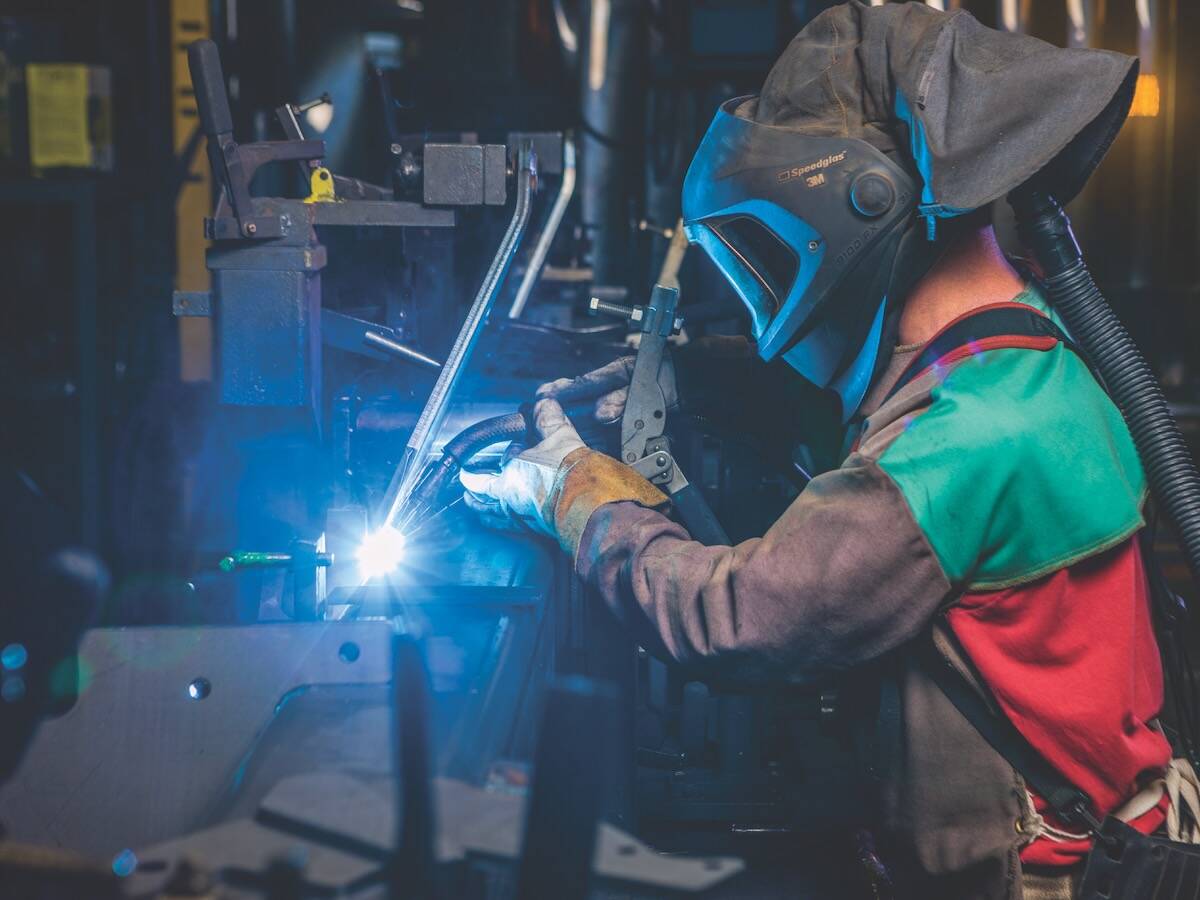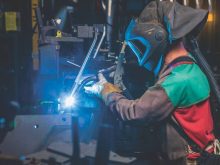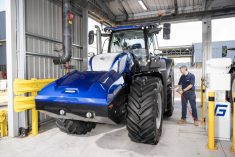Last October, Agco said it had taken what it called a “radical step towards carbon neutral engines” with the debut of its new Core diesel engine platform. The company claims this new engine will eventually be capable of running on a range of new fuel types.
Proposed future environmental regulations in many countries threaten to push king diesel off its throne. Heavy equipment manufacturers, including ag machinery brands, are clearly feeling the need to look for alternatives. Increasingly, they’re turning their attention to replacing diesel with one of a variety of potential fuel sources, such as hydrogen, which have reduced carbon footprints. And that means rejigging engines to handle them.
“Alternative fuels of the future, such as hydrogen, ethanol, methanol, biogas as well as electric hybrid applications, set new demands for an engine,” says Agco Power CEO, Juha Tervala. “The Core engine platform is designed to enable the use of alternative fuels with further development.”
Read Also

Farm equipment market unlikely to pick up
North America’s farm machinery sales have been slow and uncertain thanks to tariffs and trade disruption. There’s not a lot of hope for change in 2026.
“Today, the primary challenge of product development is to get rid of the fossil carbon, or at least to radically reduce it,” adds Agco Power’s director of engineering, Kari Aaltonen.
Much of the R&D in heavy equipment design is now focusing on accommodating alternative fuels in internal combustion engines (ICEs). That contrasts significantly from the battery electric trend taking the automotive industry by storm these days. The reason for the different development directions is simple — it’s because the capabilities of ICEs running on diesel fuel just can’t be matched in high-horsepower applications by battery electric technology, for the moment, at least.
[RELATED] Electric variable transmission for John Deere 8R tractors
And keeping a traditional ICE but using a more environmentally friendly fuel offers several advantages over radical driveline changes, like converting to battery electric. In short, it makes it unnecessary to reinvent the wheel, so to speak. Finding a suitable, alternative, low-carbon fuel makes meeting emissions reductions a much simpler and cheaper process for engineers.
Hydrogen and biofuels are emerging as leading contenders to replace diesel fuel because they offer the promise of comparable engine power output and operating range to what diesel-fuelled engines now offer.
Agco Power’s Core engine platform will form the base technology that will allow Agco’s brands to incorporate hydrogen or other low-carbon fuel into equipment in the future.
The first engine to be introduced in the Core range is the Core75. It’s a 7.5-litre, 300-horsepower design that can deliver 1,130 foot-pounds of torque and offers improved fuel economy, according to Agco. It hits peak torque at just 1,300 r.p.m. The Core platform’s first commercial use will be in the brand new Fendt 700 Vario Gen 7 tractors, which Agco introduced earlier in 2022.
[RELATED] International Trucks introduces new powertrain
The engine was designed to allow for some overall improvements to the Gen 7 tractors as well.
“Agco Power’s engine designers have worked extensively with Fendt engineers to develop the new Core75 engine for the Fendt 700 Vario Gen 7 tractor,” says Walter Wagner, vice-president and managing director for research, development and purchase at Agco. “It has excellent low-speed performance, and fits perfectly with the Fendt Vario transmission. The engine’s innovative design results in additional benefits, such as improved turning radius and higher ground clearance. We look forward to future additions to the Core engine platform for Fendt machines.”
Overall, the Core engine design uses fewer moving parts than previous Agco Power engines, making it a simpler design, says Agco. And that means it should be more reliable and easier to service. It also uses an “advanced” emissions after-treatment system without the need for EGR (exhaust gas recirculation).
However, the Core 7.5-litre version that will soon hit the market in the Fendt 700 isn’t yet capable of running on hydrogen or similar fuels. However, it is compatible with the current HVO (hydro-treated vegetable oil) fuels, such as biodiesel. The advantage of the Core engine platform is it’s a “ground-up” design intended to eventually accommodate alternative fuels.
Its release, and the recent introductions of other hydrogen and biofuel-ready engines from other manufacturers, makes it clear there is increasing momentum in the switch away from fossil fuel use. Like it or not, diesel fuel use will likely begin to decline sooner rather than later.
















